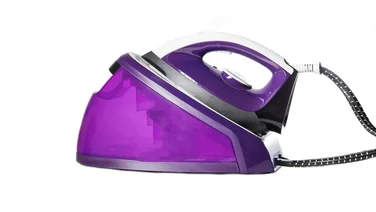To help us provide you with free impartial advice, we may earn a commission if you buy through links on our site. Learn more

With rising energy costs and the recent 5% increase in the energy price cap, many of us are looking for the cheapest time to use a washing machine. Large appliances such as washing machines, dishwashers and tumble dryers consume a lot of energy, so doing your laundry during cheaper times can really help to bring down your bills.
However, since most of us are in the dark about when energy tariffs are at their lowest, it’s all too easy to miss the opportunity and wash during peak times – when using the machine will cost an average of 59p an hour.
Luckily, taking advantage of off-peak energy tariffs is simple. Read on for everything you need to know about running your household appliances at the cheapest times.
READ NEXT: Best energy suppliers
What are peak and off-peak times?
Electricity tariffs often fluctuate to reflect supply and demand throughout the day. At off-peak times, when overall demand for energy is lower and the grid is under-used, electricity will be offered at reduced cost. Off-peak hours tend to be during the night, early morning and sometimes on the weekend (when commercial demand is lower), while peak times are the most popular and expensive periods to consume energy.
What is the cheapest time to use a washing machine?
This will depend on your particular tariff, but in general, scheduling your washing machine to run in the early hours of the morning is likely to be the most economical time. The best washing machines, including the best cheap washing machines, include time delay settings, which you can use to schedule a wash cycle to run while you’re asleep; you can unload the machine as soon as you’re up in the morning to avoid any nasty mildew smells developing. Some newer machines even offer Wi-Fi connectivity, allowing you to schedule overnight loads via your phone. If you’re looking to reduce your energy bills, it’s important to avoid running the machine during the most in-demand times for energy, usually 4-7pm.
READ NEXT: Best smart washing machines
How do you know if you have an off-peak tariff?
If you’re not sure what tariff you’re on, get in touch with your energy provider to find out the details of your deal, and consider changing provider if your tariffs don’t offer discounted rates. Some providers have specific hourly windows of free electricity, while others offer reduced costs overnight or over the weekend. If you have a smart meter then this, too, can provide insights; you can observe over time when your rates are at their lowest in order to schedule high-energy cycles during these times.
READ NEXT: Expert Reviews Energy Awards 2024
Understand how to use your washing machine
Heating hot water is the biggest culprit of energy consumption when it comes to washing machines, so use the coolest cycle suitable for your wash load. Paul Whyte of AO says, “Most washing machines have the option for you to wash your clothes at 30°C. Data shows that washing on a colder setting could reduce running costs by as much as 57% when compared to washing at 40°C. For clothes that aren’t overly stained, a 30°C wash is sufficient and will help you save money.”
READ NEXT: Laundry and washing machine symbols explained
How else can you save money on laundry costs?
AO’s purchasing director, Paul Whyte, says there are other things you can do to make sure your washing machine cycles are as cheap as possible. “The newer the appliance, the less it costs to run, so if you’ve been considering a new appliance, now is the time to make the change. Any appliance over seven years old will already be costing you more than a newer one. Newer models often come with advanced technologies that consume less energy while providing the same or even better performance. A-rated appliances may cost a bit more but, ultimately, they save you money in the long run.”
Check out our handy washing machine energy ratings explainer for more information on understanding how ratings work.






